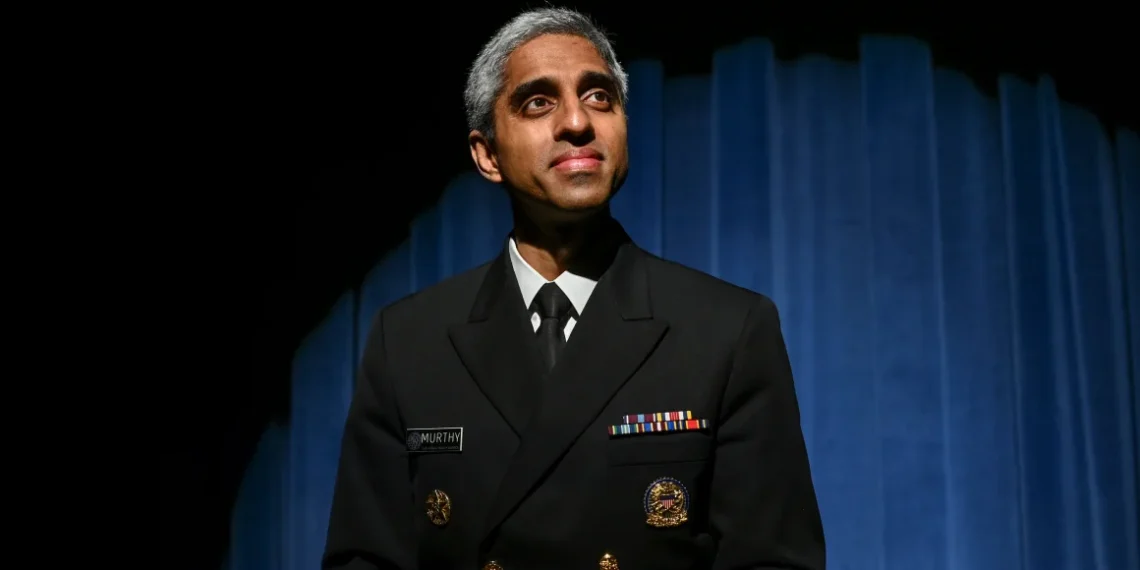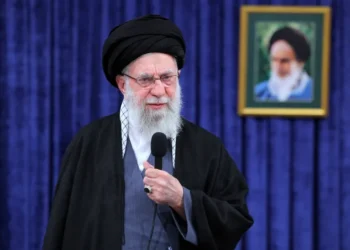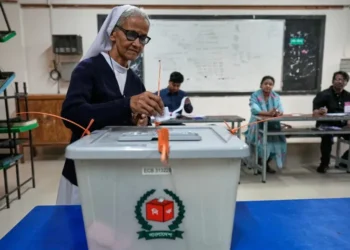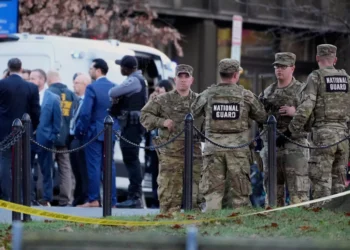Surgeon General’s Final Prescription for America: A Stronger Sense of Community
As Dr. Vivek Murthy prepares to step down as the U.S. Surgeon General, his final message to the American people is clear: the nation’s health crisis is rooted in a lack of community, and the remedy lies in rebuilding strong, supportive connections. After serving two terms, Murthy’s assessment of the country’s well-being reveals a growing deficiency in human connection, which has contributed to widespread unhappiness and poor health outcomes.
In an essay published Tuesday, Dr. Murthy offers his “parting prescription” for healing the country—one that emphasizes the importance of community. “Community is a powerful source of life satisfaction and life expectancy,” he wrote. “It’s where we know each other, help each other, and find purpose in contributing to each other’s lives.” He believes that by fostering relationships, acts of service, and a sense of purpose, Americans can improve their mental and physical health.
The Power of Connection, Service, and Purpose
Murthy outlines three key elements essential to creating a fulfilling life: relationships, service to others, and a sense of purpose. He contrasts these values with modern concepts of success, which often prioritize wealth, fame, and power. “The triad of success is focused on the individual. The triad of fulfillment connects us with something bigger than the individual,” he explains. “The triad of success may earn us praise and possessions, but the triad of fulfillment gives us meaning and belonging.”
These elements, Murthy argues, are time-tested pathways to life satisfaction, in stark contrast to the hollow pursuits of individual achievement. Building community through connection, helping others, and finding a sense of purpose provides lasting fulfillment and strengthens personal well-being.
Tackling Social Isolation and Mental Health
Throughout his tenure, Dr. Murthy has addressed several public health crises, including addiction, youth mental health, and the negative impact of social media. He highlights how platforms designed to connect people have, ironically, contributed to loneliness. “Social media has turbocharged a culture of constant comparison that too often undermines our self-worth,” he wrote. Murthy explains that the quest for approval and validation through likes and followers is not only unfulfilling, but harmful.
Murthy’s reflections, though not scientific reports, cite multiple studies supporting the link between social connectivity and better health outcomes. He emphasizes that social disconnection increases the risk of heart disease, dementia, depression, and early death, with a significant portion of the population experiencing loneliness. “A third of adults and half of young people experience loneliness,” he noted.
On the flip side, a sense of purpose is proven to benefit mental and physical health. Studies show that individuals with a strong sense of purpose are at a lower risk for premature death, stroke, dementia, and depression. A high sense of purpose also fosters resilience in the face of stress, Murthy explains.
The Pandemic’s Role in Deepening Isolation
The COVID-19 pandemic only intensified the feelings of isolation that were already widespread in the U.S. But Murthy points out that the damage to American well-being goes beyond the pandemic. He writes that divisiveness within the country has eroded collective trust, making it harder for people to rise above common challenges together. “It is fueling not only illness and despair on an individual level, but also pessimism and distrust across society,” Murthy observes.
As he concludes his tenure, Murthy urges the nation to prioritize rebuilding a sense of community. “Choose community,” he implores, offering this as his final wish for the American people.
The Future of the Surgeon General’s Office
Dr. Janette Nesheiwat, a family physician and medical contributor to Fox News, has been nominated to replace Dr. Murthy as Surgeon General in the new administration under President Trump. Health experts have expressed mixed views on her appointment, particularly with the potential inclusion of Robert F. Kennedy Jr.—a prominent anti-vaccine activist—leading the U.S. Department of Health and Human Services. The coming administration may present challenges for those advocating for science-based public health policies.
As Murthy leaves his post, his message remains clear: to heal the nation, America must focus on strengthening its sense of community. This shift, he believes, can lead to a healthier, more fulfilled society for all.
This article was rewritten by JournosNews.com based on verified reporting from trusted sources. The content has been independently reviewed, fact-checked, and edited for accuracy, neutrality, tone, and global readability in accordance with Google News and AdSense standards.
All opinions, quotes, or statements from contributors, experts, or sourced organizations do not necessarily reflect the views of JournosNews.com. JournosNews.com maintains full editorial independence from any external funders, sponsors, or organizations.
Stay informed with JournosNews.com — your trusted source for verified global reporting and in-depth analysis. Follow us on Google News, BlueSky, and X for real-time updates.














